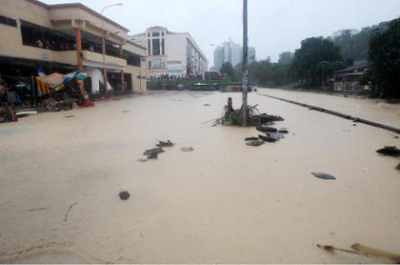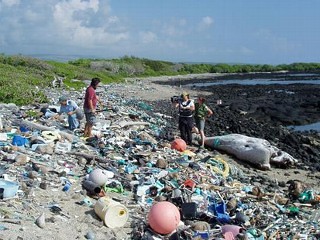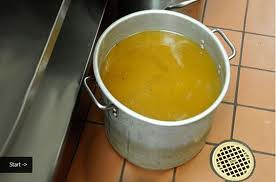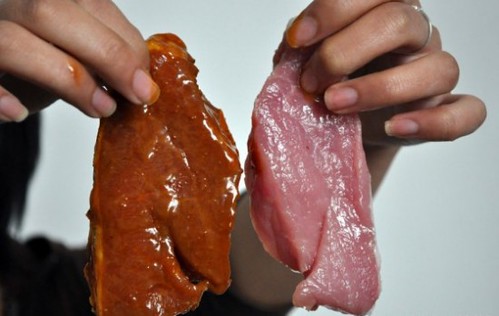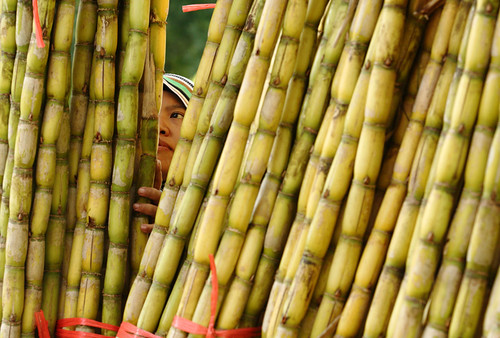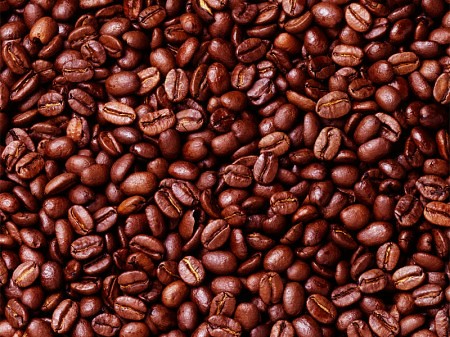Saturday, December 3, 2011
Friday, December 2, 2011
The Worst Oil Spills in the History
These photos shows what would be known as the biggest oil spills in the history, the Gulf War in 1991. It's the largest accidental oil spill in history happened at Persian Gulf in 1991 where it place 240 million gallons of oil into the ocean close to Kuwait and Saudi Arabia.
Thursday, December 1, 2011
Photoshot: Plastic Bags and Our Environment
 |
| Dead bird - his belly full with plastic material |
Wednesday, November 30, 2011
New Car Smell: Does it hazardous? (Part 2)
One study, reported this on December 2001, was administrated
by Stephen K. Brown and Min Cheng of Australia's Commonwealth Scientific &
Industrial analysis Organization (CSIRO). The reading took a glance at VOCs in
3 new 1998 vehicles by gas chromatography/mass spectrometry analysis of air
samples taken from the vehicles once that they had been sealed for many hours.
The vehicles were re sampled at numerous intervals for up to 2 years.
Tuesday, November 29, 2011
New Car Smell: Does it hazardous? (Part 1)
There's one thing concerning the smell of a new automobile where for some people, the leathery, plasticky aroma that hits you once you
slide behind the wheel may be a pleasurable scent, seductive smells or even
perhaps addictive. On the other hand, for some people the smell
is stinking, especially for somebody who has an acute chemical sensitivity.
Saturday, November 26, 2011
Danger of Plastic Bags – Scary Facts 2
 |
| Baby monkey eating plastic |
Based on statistic estimation, the average family adds 60
plastic bags in only four trips to the grocery store.
In good situations, high-density polyethylene plastic bags will
take more than 20 years to degrade. However in less ideal conditions such as on
landfills or as general refuse, a bag will take more than 1,000 years to
degrade.
Friday, November 25, 2011
Danger of Plastic Bags – Scary Facts 1
Figures released by the United States Environmental
Protection Agency illustrate that somewhere between 500 billion and a trillion
plastic bags are consumed worldwide every year. According to National
Geographic News September 2, 2003. Note that this information was in the year
of 2003.
Wednesday, November 23, 2011
Fake Made in China - Chinese Cooking Oil Made From Sewage and Trash
This is a very interesting video how Chinese recycle and reuse the cooking oil. It was reported that already many people was death.
Tuesday, November 22, 2011
Monday, November 21, 2011
Popularity of Organic Tomatoes from Mexico
Tomatoes are currently the foremost profitable crop in
Mexico. Though the total number of acres of coffee is much greater than the
acreage of organic (cherry) tomatoes, it realize a higher turnover than the
harvest of coffee beans.
Thursday, November 17, 2011
Wednesday, November 16, 2011
Chinese Green Tea Unsafe
New Zealand Food Safety Authority (NZFSA) warns people not
to consume all the seeds that can be found in Chinese green tea. This product
is sold under various names such as Heng Ming Tea Canton love pea.
The tea was pulled from the shelves when the Inspector found
that the contents did not match what was written in components. It contained
toxic pods not removed. Product recalls now withdrawn from sale by the
importer. Please check the video for more details.
Tuesday, November 15, 2011
How to Identify Fake Egg from China
China has been popular with anything copy and produces
where they don’t care anything on copyright or laws. Money is everything for Chinese
and in order to make more money they are thinking of faking on almost anything
in their life. Because fake products make much money than the real one, we can
see so many Chinese goods and products are being produce to look good from
outside where the reality of it you have to wait and see.
Monday, November 14, 2011
Cambridge University Produces Low-Cost Plastic Organic Solar Cell
By inserting organic polymers long chains of carbon-based
molecules in plastic you produce an organic photovoltaic cell, that till
currently haven't had a lot of business success. With an operating principle
just like photosynthesis in inexperienced plants, organic photovoltaic cells
are low-cost to provide compared to silicon solar cells, however have quite a low potency. This can be one thing that the University of Cambridge is about
to amend.
Sunday, November 13, 2011
Saturday, September 24, 2011
Tuesday, September 20, 2011
Tuesday, July 5, 2011
Subscribe to:
Posts (Atom)
